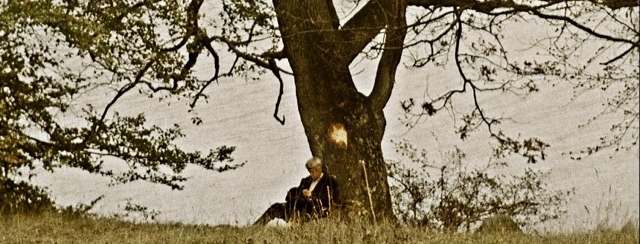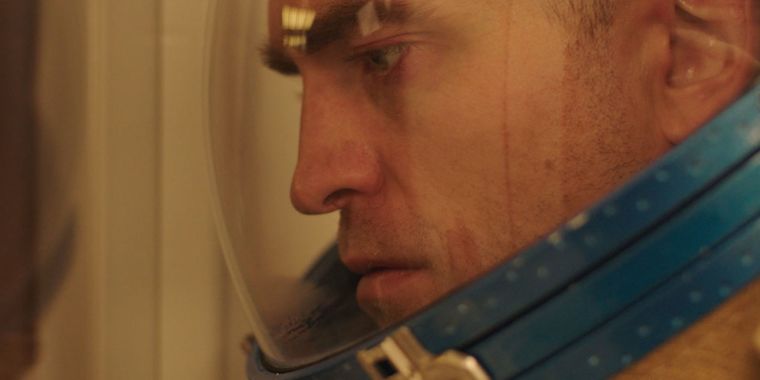@HenryFlower @europe1 @Tycho Brah @Rimbaud82 @chickenluver @moreorless87
So
Henry reminded me in the SMC that I never got around to posting my syllabi for the two film classes that I'm teaching this term. In case you guys are interested, here's what I'm doing.
First, I'm teaching a class at Columbia College Chicago (where I did my undergrad - it's a great film school and it's where I've always wanted to at least start teaching if not where I end up teaching permanently, though that'd be a sweet gig). It's one of the core film studies classes called Cinema Analysis and Criticism. It's a writing and research intensive class that film students take after they've already taken a couple of film classes. The structure of the course is as follows: There are three units over the course of the 15-week term. Unit 1 is aesthetic analysis, Unit 2 is ideological analysis, and Unit 3 is historical research. The structure remains the same, but each professor gets to pick which movies to screen and have the students write essays about each unit. For my choices, I'm having them watch and do an aesthetic analysis of
Taxi Driver in Unit 1, watch and do an ideological analysis of
The Fountainhead for Unit 2, and watch and write a research paper on
The Dark Knight Rises for Unit 3. I fucking love the students in the class and the idea/structure of the class is awesome. If I could just teach four or five units of this exact class each term, I'd be a happy professor.
Second, I'm teaching a class at DePaul University. Technically, I'm at another campus, but it's a DePaul class and it's part of their History of Cinema core. The way DePaul does it, there are three History of Cinema classes: The first is 1895-1945, the second is 1945-1975, and the third is 1975-today. I'm teaching 1945-1975. This isn't a film school class, so the students are mostly advertising/marketing students with a few general "media studies" undergrads thrown in and one kid who wants to be a filmmaker. I'm going to be honest, I'm not all that excited about this class, mainly because teaching film students is so much more fun and rewarding than random kids who don't
really know or care that much about movies just looking to take a gen ed class, but still, I get to talk about movies, so I'm not complaining. For this class, I'm going to have the students write a midterm paper and a final paper and then have them keep film journals for each weekly screening. As for the screenings, this is how I've broken the 10-week quarter down week-by-week:
Unit 1: American Cinema in the 1940s -
The Best Years of Our Lives (I wanted for sure to have them watch a movie that dealt with WWII, but I also want to emphasize the "classical Hollywood" style, and it's hard to find a better showcase than a William Wyler movie)
Unit 2: Italian Neorealism -
I Vitelloni (Neorealism was a must, but while I do like many of the obvious exemplars like
Open City and
Bicycle Thieves, I figured I could talk about those while having them watch
I Vitelloni, which, though a late example, is IMO the best Neorealist film and massively influential despite being pretty damn underrated)
Unit 3: American Cinema in the 1950s -
On the Waterfront (I wanted to emphasize the Method Acting boom with Brando, Clift, and Dean, plus
On the Waterfront will allow me to talk about the blacklist and what was going on in and around Hollywood at the time)
Unit 4: Postwar Japanese Cinema -
The Burmese Harp (Similar to the Neorealism week, while I could've gone the obvious route and had them watch a Kurosawa or Ozu movie, I figured I could talk about them while having them watch the supremely underrated Kon Ichikawa's supremely underrated antiwar film
The Burmese Harp, plus it's an opportunity to compare-and-contrast how different national cinemas dealt with the same event, viz. WWII, from different perspectives)
Unit 5: Ingmar Bergman: Authorship and the Arthouse -
Through a Glass Darkly (Honestly, this week is here to justify my purchase of the Ingmar Bergman's Cinema collection from Criterion and to give me an excuse to spend a week talking about Bergman movies)
Unit 6: French New Wave -
Last Year at Marienbad (Shout-out to
Henry, I'm once again eschewing the obvious in Truffaut and Godard and will focus instead on Monsieur Left Bank, Alain Resnais, and maybe use the day as a fun day right after they turn in their midterm papers to put the students into teams to debate what's happening in various scenes

)
Unit 7: American Cinema in the 1960s -
Midnight Cowboy (
The Graduate is too obvious and I hate
Bonnie and Clyde, so the best candidate to talk about American cinema in the '60s was obviously
Midnight Cowboy. Plus, it'll allow me to tie together the rise of the arthouse and cinematic modernism and show its influence on post-classical Hollywood)
Unit 8: Britain on the Brink -
Get Carter (Your eyes do not deceive you,
europe: I'm going to do a week on British cinema and I'm going to focus on the '60s/'70s leading them up to the non-Stallone original

)
Unit 9: Hong Kong Martial Arts Cinema -
Fist of Fury (No one is surprised that I shoved in a Bruce Lee week, right?)
Unit 10: American Cinema in the 1970s -
The Getaway (I wanted to end with an introduction to the burgeoning American action film, and since I'm past 1968 and thus can't use
Bullitt, I'm using the next best thing and still managing to end with a Lee/McQueen one-two punch

)
Finally, speaking of the American action film, I already know that in January I'm going to be teaching an additional two classes at DePaul. One is a very general "Media and Cultural Studies" class (doing it for the money, though it'll still be fun, as I'll be able to talk about movies, TV, and stand-up, all of which I love) and the other is a class that I was allowed to design myself. It's a film elective under the "Topics in Film Genre" umbrella, and it's going to be called "The Hollywood Action Film." Here's how that one's going to go down:
Unit 1: Chase Films, Swashbucklers, and Slapstick - Instead of a single film screening, on this intro week I'm just going to show them a lot of clips of early chase films, some Douglas Fairbanks stuff, and then the Clown Trio of Chaplin, Keaton, and Lloyd.
Unit 2: Fighting Crime -
G-Men (It is my position that the first "official" Hollywood action film was
G-Men and the first "official" Hollywood action and martial arts star was James Cagney, so how better to officially kick off the class?).
Unit 3: Superwesterns -
Shane (Rejoice once again,
europe: I think that old school gangster movies and Westerns are prerequisites to contemporary action movies, so we've got to cover those bases early).
Unit 4: A New Era -
Bullitt (
Dirty Harry gets all the attention, but the new school action movie begins with
Bullitt, and my students are going to learn that).
Unit 5: Martial Arts Spectacular -
Enter the Dragon (Um...duh).
Unit 6: Righting Wrongs -
Rambo: First Blood Part II (I wanted to do a right-wing action and left-wing action double-header, and the obvious right-wing pick was the movie that set '80s US politics on fire).
Unit 7: Liberal Action -
On Deadly Ground (The obvious left-wing pick, meanwhile, is, of course, the Sensei's passion project).
Unit 8: Gender in Action -
Kill Bill (I had to show the ladies some love, and if I'm going to talk about gender, why not give The Bride the floor? I was originally thinking about using
Haywire, but I think that there's more to talk about with
Kill Bill, especially with how Tarantino connects The Bride to the
Come Drink with Me/
Lady Snowblood lineage of action heroines).
Unit 9: Race in Action -
Black Panther (Can't leave the race card in the deck after pulling the gender card. While I was originally thinking of doing the race unit on
Action Jackson, once again, I think that
Black Panther would provide more to talk about, especially inasmuch as it opens the door to superhero movies in general, about which I'll have very little to say in the course on the whole).
Unit 10: Pasts and Futures -
Rambo: Last Blood (This is kind of contingent on Stallone not stinking up the joint with this one, but I'd really love to be able to take the class from the birth of cinema to a movie that may well still be in theaters during the class. Plus, the ability to connect back to the previous week with Rambo II would be very cool).
So, in short:









